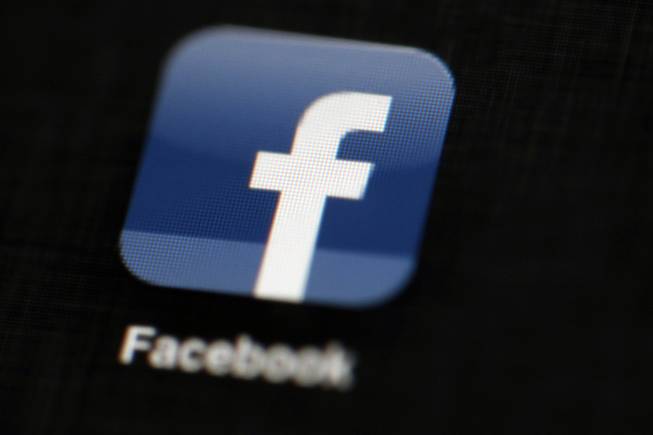
Matt Rourke / AP
In this May 16, 2012, photo, the Facebook logo is displayed on an iPad.
Saturday, March 31, 2018 | 2 a.m.
If the Cambridge Analytica scandal has you rethinking your Facebook account, you’re not alone. Lots of people have recently declared that they’re done with the social media service, including such unlikely parties as Will Ferrell and Elon Musk. But dumping Facebook isn’t easy — and there’s a good chance that you need to stick with it for work purposes or to stay in touch with family. If that’s the case, here are five things you can do to safeguard yourself against the next Facebook breach.
1. Jump ship. There’s a good number of social media services that approximate Facebook’s functionality. (They even surpass it in some key areas, including — but not limited to — not selling your information to third-party scammers.) You could try Ello, Diaspora, Google+ or Vero, all of which are perfectly nice except for the fact that next to no one uses them. (Seems like every time a Facebook competitor arises, everyone signs up for an account in the hopes of transferring their flag … and then those accounts sit, unused beyond a few tentative posts.) Or: you could go to Twitter, which is the worst thing ever; to Instagram, which is outwardly nice but owned by Facebook; or to Snapchat, which is in the process of adding the same kind of third-party connectivity that Facebook used to sell your data.
2. Limit its third-party access. Go to your settings page and select “Apps.” You’ll see a list of all the third-party apps that interact with your account. Delete access to everything you don’t recognize or has the word “quiz” somewhere in its name. Cambridge Analytica bought your info from one of those so-called “personality quizzes.” Don’t make it easy for the next bad actor to misappropriate your personal info.
And while you’re in settings: Click “Ads.” There you can fine-tune which ads Facebook chooses to show you. The “Your Information” field is where you can choose to share (or not share) your relationship status, employer, education level and so on. (Scarier still: The “Your categories" subhead under “Your information,” in which Facebook determines your personality type based on what you’ve posted — your politics, what kind of friends you have and so on. Go in there and delete, delete, delete.) And the “Ads with your social actions” field is where Facebook shares your tacit approval of businesses — “Geoff Carter likes LEGO” — without informing you. Set it to “No one.”
3. Quarantine it. One of Facebook’s more unsavory traits is the way it tracks your web browsing habits even when you’re not on Facebook. A new Firefox browser extension called Facebook Containerputs Facebook in a box, blinding it to your other web activity. For now, it’s only available for the Firefox browser, but that’s not the worst thing: You should put as many obstacles between you and your Facebook account as possible. See the next item.
4. Wean yourself off it. Most of us look at Facebook on our phones, and there are several ways to curtail that use. You can remove the app from your phone, forcing yourself to use the mobile version of the site; those extra steps could persuade you not to bother checking your feed. Or you could download an app specially designed to cure smartphone addiction, like Offtime (offtime.co) or BreakFree (breakfree-app.com). These apps can tell you how much time you’re spending on Facebook — or better still, they can block your access entirely, for as long as you choose.
5. Or just delete your Facebook entirely. It’s possible, but again, it’s not easy. New York magazine’s Select/All has one of the best step-by-step processes for deleting Facebook forever, though as the article notes, it could take months for everything you’ve uploaded to Facebook to be erased entirely. Good luck … and if you get free, send us a postcard. Through the mail, please.
